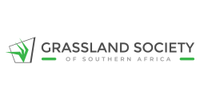Event Details
Data management is a core part of scientific research, environmental monitoring and auditing, and compliance. Yet it remains a neglected part of most natural scientists' toolkits and training, as we must learn, largely unaided, the complexities of managing our datasets for ease of access, collaboration, future meta-analysis and legal compliance.
The course will cover the basic principles and standards of data management, including planning, collecting and packaging data, how data management can improve your work, and the ethical, legal and contractual obligations that can be met by good data management.
This introductory course builds upon twenty years of experience in monitoring rangelands, integrating third-party datasets, and conducting long-term ecological research using a mixture of original and pre-existing data.



